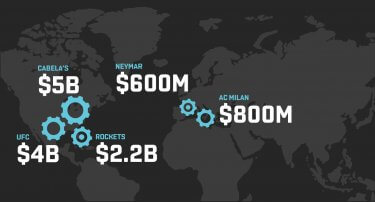The real forces at work changing sports in 2017
People who are changing the world are using sport to do it. Why?
They criticized ESPN’s coverage of Michael Sam, and Caitlyn Jenner, and Serena Williams vs John McEnroe. They touched on recent history in North Carolina, where the NCAA pulled its basketball tournament out of the state, and the NBA pulled its All-Star game.
To be clear, this kind of thing has been happening in sports forever. Dale Earnhardt Jr — the most popular driver in NASCAR — said the Confederate flag is “offensive to an entire race” and ought to be removed from the South Carolina state house. The state of Arizona lost the Super Bowl in 1990 because they refused to make Martin Luther King Jr Day a holiday. There are hundreds of examples, all around the world, throughout the entire history of sports. Now and then, politics has always crept into sports.
What’s different today is that it’s a business strategy. It’s a calculated attempt to divide sports fans for financial gain.
We often talk about the business of sports as if it’s Big Business. We mention television deals in the billions, attendance league-wide in millions. Stadiums that host a mere 15 games a year cost more than bridges used by a million passengers every day.
In fact the sports business is not very big — only $500 billion, globally. Which is small compared to industries that measure in the trillions. But it holds the world’s attention, and therein, it has influence far beyond its size. Part escape from society, part mirror to society, sports has powerful emotional resonance.
The question is, will sports continue to be a pawn of the geopolitical economy, or is sports strong enough to defend itself, and become what we always wanted it to be — a level playing field, a uniter of spirits, a human drama built on physical grace?










